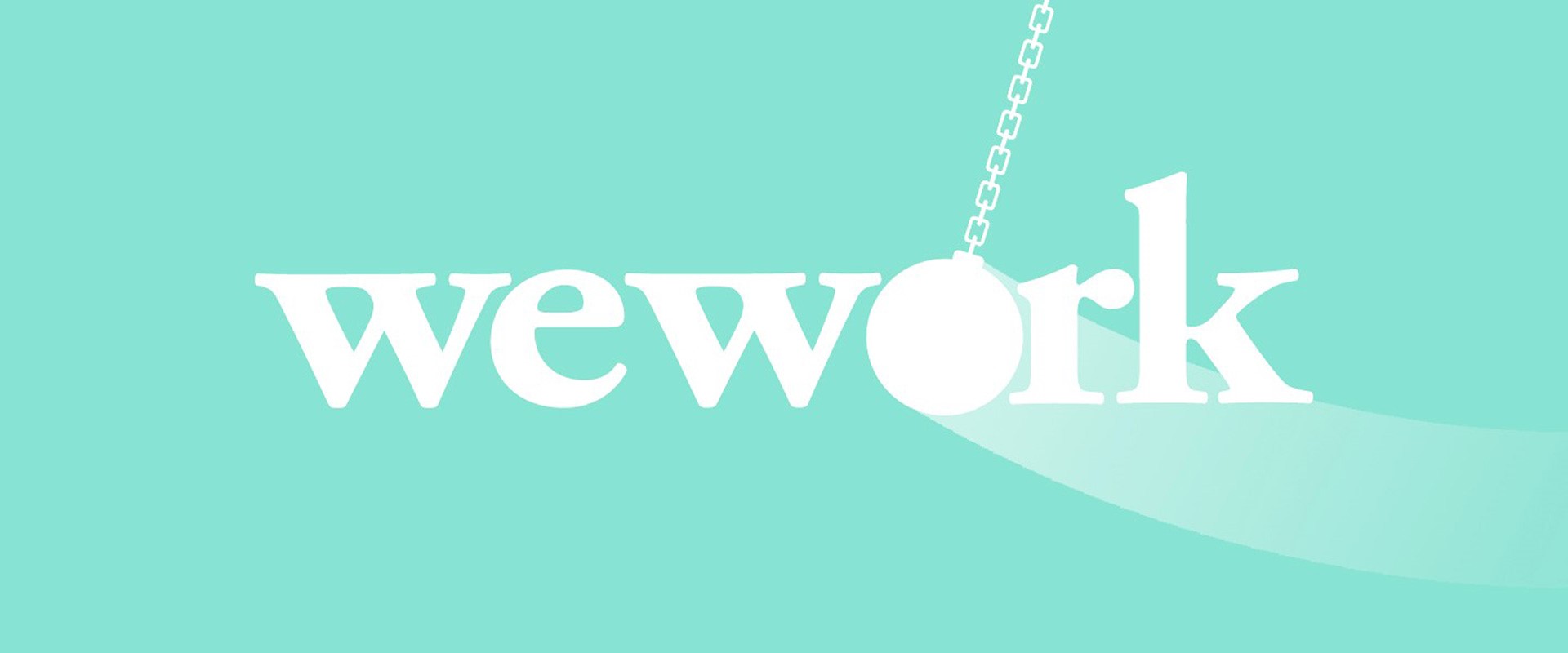I wrote a blog about the global co-working office space company Wework back in October 2019 see: https://bd2.com/bd2-blog/archive/does-wework-work/ following it's failed IPO and the resulting fall out which saw thousands of its staff laid off and charismatic CEO Adam Neumann forced to leave his role and then shortly afterwards, the company altogether.
Wework is, or perhaps I should say was, one of those new breed of high profile 'unicorn' businesses valued in Billions of dollars, based on the levels of investment they attract - in 2017 Japan's Softbank invested $3B into the co-working space property developers, instantly valuing the business at $20B. Despite being heavily loss making, Wework went onto value itself at a staggering $47 Billion when it announced plans to float, before discounting down to $20B and ultimately a slightly embarrassing $8B before eventually pulling the ill-fated flotation attempt.
I've been listening to an excellent podcast series 'Wecrashed' by David Brown of Wondery, whilst doing my daily exercise during lockdown, and it provides a fascinating insight into the company's Icarus-like story. And, coincidentally, Wework was back in the news over the weekend prompting me to write this follow up piece. The latest news was that Wework's longstanding investor Softbank, led by founder Masayoshi Son, finally stopped chasing its losses and pulled out of a deal to buy back shares that would have seen a further $3B invested in Wework. Softbank had already invested a further $9B as part of the restructure after the IPO was pulled, this was followed by another $1.5B equity investment as well as $4B of debt financing. All of which is added to by over $10B of previous investments.
The biggest loser following Softbank's withdrawal will be founder Adam Neumann who would've received a stunning $970M in the deal. Many employees have also lost out as the $300M they would have shared as part of the deal has also evaporated leaving many with uncertain futures. Not so Mr Neuman, he received an absolutely amazing $180M 'consultancy fee' when he was effectively sacked in November last year. This is added to by the hundreds of millions of dollars he made whilst CEO which includes several questionable deals such as registering Wework brands privately before selling them back to his own company for several millions, or the decision to use $60 Million of company money to buy a corporate jet which was seemingly his own plaything reportedly hosting many Tequila and Marijuana fueled airborne parties. He has also spent over $80M on five homes, including 2 in New York (now up for sale) and a 13,000 square foot property in San Francisco with a guitar-shaped room for $21M. Neumann's personal worth was once estimated at over $4 Billion.
The Wecrashed podcast, which I thoroughly recommend as being worth a listen, provides a fascinating insight into the company's culture, driven by Neumann and his wife Rebekah, a cousin of Gwyneth Paltrow, which seemed to operate in an almost cult-like fashion. The company's “mission” was to “elevate the world’s consciousness” and “change how people work, live and grow” with the charismatic Neumann achieving a kind of messianic status. Because of this aura, but mostly because of a unique share structure which included 'special shares' which carried 20 votes each, Adam and his wife had complete control of the business and were able to more or less do what they wanted with Billions of investor money at their disposal. So as well as opening new Wework offices across the world at a mind-boggling rate - over 120 cities in 40 countries becoming the largest office occupier in both New York and London - they also expanded the 'We Company' concept into all kinds of areas such as education with 'Wegrow' schools described as 'an educational community that fosters growth in humans' minds, bodies, and souls'. Then there were investments into a wave-pool maker, a medical marijuana provider and a super food company that sold 'performance mushrooms' and powdered coconut water.
Unicorns, like Airbnb, Klarna and Uber, are predominantly technology businesses and whilst Wework claimed to be “connected by our extensive technology infrastructure” and although it did have an app to book rooms and services, ultimately Wework is a property company with a neat co-working concept and a deeply flawed business model. Wework took out leases on huge buildings for 10, 15, even 20 year terms, but then sublet the space on flexible short-term rentals allowing tenants to walk away with as little as a month’s notice. WeWork agreed to these long leases so they could negotiate long free-rent periods in exchange, sometimes up to 36 months. Obviously during the rent free periods WeWork would make lots of money, but when the free periods ran out, the company started hemorrhaging cash so in order to keep the whole thing running, it needed to open more and more offices. The IPO document revealed that it was losing 2 dollars for every dollar it generated in revenues, something potential investors quickly spotted as they backed away from the IPO triggering the company's near collapse, save for Softbank's interventions.
The current pandemic comes at the worst possible time for the business - not that there's a good time for a pandemic - but because the short term lettings model allows tenants to work from home and not pay any rent to Wework. This really leaves Wework on the brink, despite Softbank's ongoing assurances that they still see a future for the business. The next few months will be really a crucial period for WeWork’s and whether it can survive until after the coronavirus crisis. Before the pandemic, it was thought that either WeWork would scale down into a smaller $3B to $5Billion property company - after all there is demand for co-working space - or it could become one of the biggest casualties of the current economic turmoil.
Academics refer to “the illusory truth effect” - if you say something often enough people with eventually believe it’s true, politicians and marketing experts use it all the time. WeWork mastered it too with the mantra: “We’re not a real estate company, we’re a tech company.” But strip out all the hype and the technology mantras and WeWork has always been just that: a flexible office space company that specialises in really trendy work places. It may well go down in the history books as the most illustrious victim of the illusory truth effect.

